This article is more than 5 years old.
On Wednesday, March 28th, I was fortunate to travel to the Etheington Conserevation Center and attend a paper mending workshop sponsored as part of the Society of North Carolina Archivists (SNCA) Annual Conference at UNCG. The workshop was taught by Director of Conservation, Michael Lee, who is a trained conservator with a specialty in paper and photographic conservation, and who worked at the Northeast Document Conservation Centeer for 12 years prior to coming to ECC.
Michael first discussed the history of Japanese paper making and the characteristics of various types of Japanese paper which use fibers from natural plants including kozo and gampi. Farmers across Japan still make unique papers from plants harvested on their farms. Each winter, when the farmers are not able to farm, they harvest, steam, beat, and form papers sheets from plants that grow on their land. This paper is, quite frankly, the best in the world. These papers have unique qualities of strength and softness, and are made in a variety of thicknesses, which make them excellent choices for repairs to books, documents, maps, etc.
Michael then demonstrated various techniques for tearing Japanese paper for repairs using several tools: a bone folder, watercolor brush and even his tongue. We all got the chance to practice on repairing mends ourselves using severeal different adhesives: wheat and rice starch paste, methyl cellulose and a premixed wheat starch paste.
This allowed us to see how various adhesives worked.
The staff at ECC also demonstrated paste making the traditional way by cooking and straining wheat starch.
We were also treated to paste making using a microwave.
We all learned so much about the proper paper and paste to use for mending, as well as seeing real life applications of the mending in the ECC lab. This work included historic maps from the US and UK, as well as, Audubon prints. This was a great workshop and I have to thank SNCA for sponsoring it and letting me into it at the last minute! It is extremely hard to find this kind of training in my field, and so I am very appreciative to be able to attend such a good workshop taught by Michale Lee, a top professional in conservation and a good teacher with a cerebral side that is wonderful to experience.
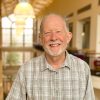
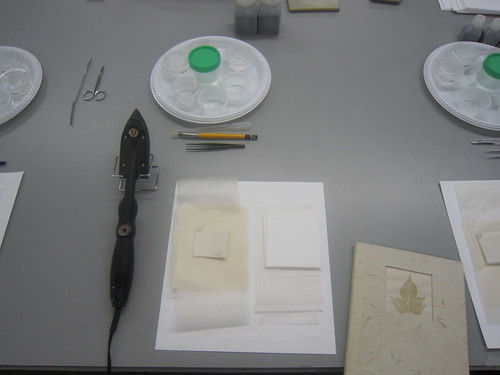
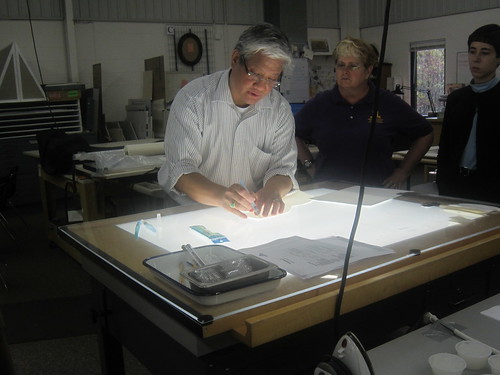
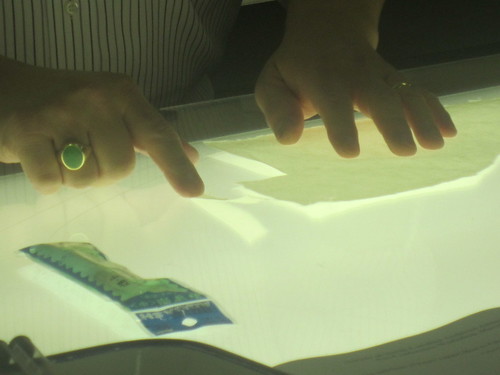
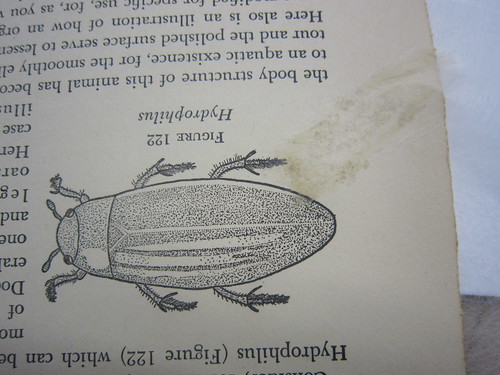
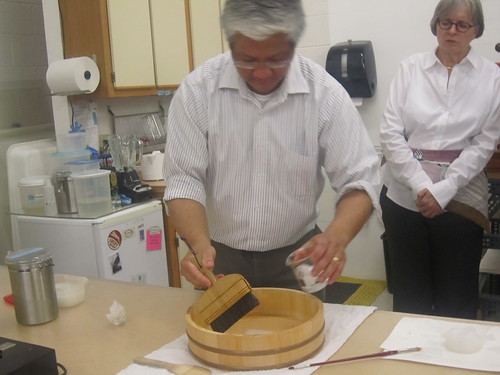
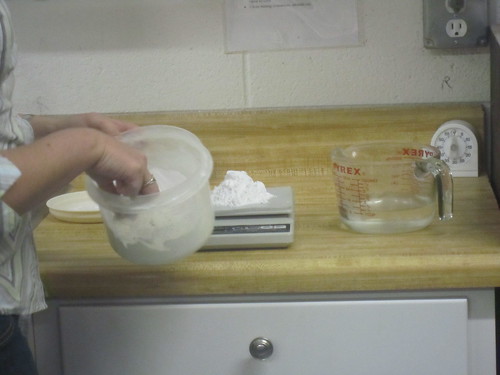
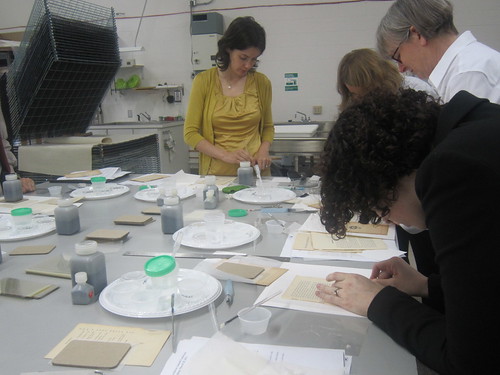
3 Comments on ‘Paper Mending Workshop @ Etherington Conservation Center’
Sounds great. We have many injured pages that you can practice on when you get home!
Can’t wait to watch you do this!
Great photos and report!